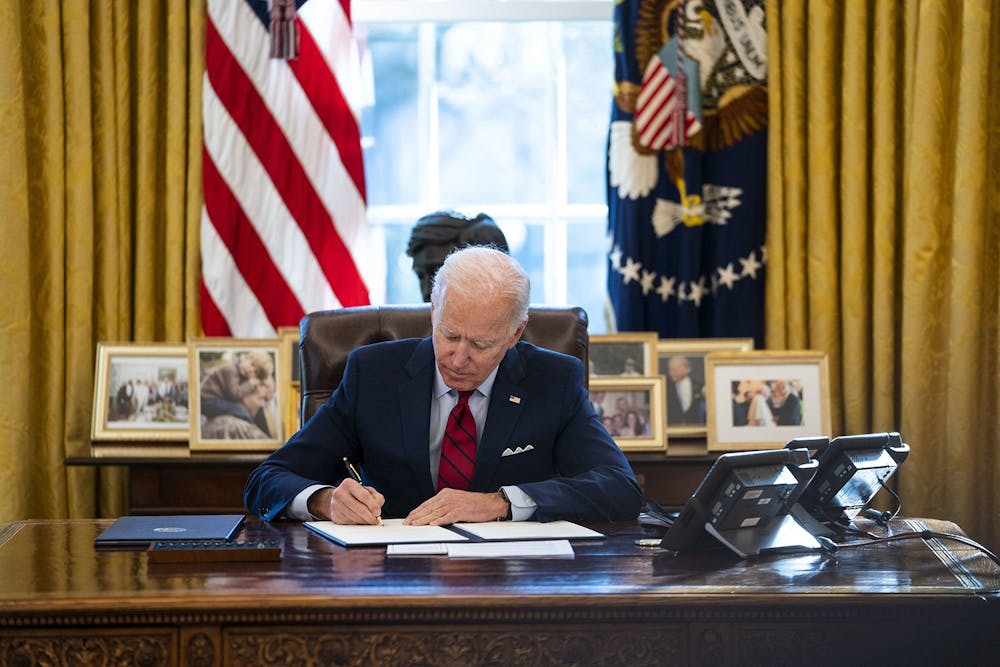Asian Americans have faced xenophobia since the COVID-19 pandemic began last March as a result of the virus being first discovered in China, ranging from microaggressions to physical violence.
In response, President Joe Biden signed an executive order Jan. 26 to condemn and combat racism and xenophobia against Asian Americans and Pacific Islanders during the COVID-19 pandemic. The executive order recommends that federal agencies strengthen cultural sensitivity towards the AAPI community and avoid racially discriminatory language when talking about the pandemic. The Department of Justice will also expand the collection of hate crime incident reports.
The move is a reversal from the Trump administration’s rhetoric labeling the coronavirus as “China virus”.
Thirty-nine percent of Asian Americans said people acted as if they were uncomfortable around them because of their race or ethnicity since the coronavirus outbreak, according to a Pew Research Center survey last July. Twenty-six percent said they feared someone might threaten or physically attack them.
Incident-reporting center STOP AAPI HATE received 2,583 reports of instances of anti-Asian discrimination nationwide, according to their report last August.
Associate professor of history Ellen Wu said she felt relief after the executive order. She said the previous administration set a low bar for racial justice.
“We’re so hungry for any kind of attentiveness and care about these issues,” she said.
Wu said the pandemic is a catalyst for the re-emergence of the perception that Asian Americans are foreign, threatening and un-American. She said the recent xenophobia against Asian Americans is interconnected with the Chinese Exclusion Act in the 19th century, the incarceration of Japanese Americans during World War II and the Trump administration’s Muslim travel ban.
“The way I think of it – it’s like it’s part of our country’s DNA, but sometimes the gene gets expressed and sometimes it just goes into hibernation,” she said. “We have to build a society where differences are not assumed to be threatening.”
IU senior Kelly Fan is the social advocacy chair of the Asian American Association and a student assistant at the Asian Culture Center. She said it’s a shame American media give little attention to the executive order. She also said it’s frustrating that China has been blamed for the virus.
“If the virus were to originate from a Western country, it would never really be called the American virus or like the England virus,” Fan said. “It would be called something like smallpox.”
Since the pandemic, Fan said she and her friends are more self-conscious as Asian Americans. She said she noticed other AAA members would make self-deprecating jokes about people being scared of them at restaurants. She said she felt sad these students would feel this way.
“It does seem like a big group of Asian American kids hanging out scares people more than it did before,” she said.
Sophomore Diem Dang is the marketing and internal chair of Lotus Interest Group, an Asian-interest Greek organization for women. She said she has seen people fake coughs next to Asian Americans at a campus bus stop. She said she didn’t confront the student because she felt it wasn’t her place, but she feels she should have stepped in.
“People's anger towards the virus is targeted against Asians rather than the virus itself,” she said.
Dang said she believes schools in the U.S. should focus more on Asian American history, and even then it’s still difficult for white Americans to understand the Asian American experience.
“They can hear about it, they can learn about it, they can sympathize with us, but they can never actually experience it, so they don’t know what it feels like,” she said.




